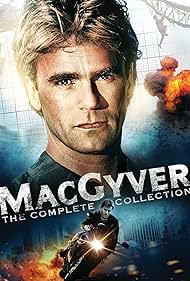Rio 2096: A Story of Love and Fury Soundtrack (2013)

Buy on Amazon Play and download Soundtracks
Rio 2096: Una historia de amor y furia
Rio 2096 - Una storia d'amore e furia
Rio 2096: Uma História de Amor e Fúria
Synopsis
In 1566, in Guanabara, the Tupinambá warrior Abeguar is in love with Janaína. When a jaguar attacks Abeguar and Janaína, he jumps off a cliff with her and he flies. The shaman advises Abeguar that he was the chosen one by the god Munhã to lead his tribe and fight against the evil Anhangá. When the tribe leader Piatã joins the French in the fight against the Portuguese, the entire Tupinambás are slaughtered and Abeguar turns into a bird that flies for more than two hundred years to find Janaina. In 1825, the warrior is Manuel Balaio that lives with Janaína and their two daughters in Maranhão. When one of his daughters is raped by the abusive police commander, Balaio leads the oppressed locals against the police and they take down the Caxias city. The government sends Duque de Caxias and his troops that vanquish the rebels and Balaio turns into a bird again that flies for more than one hundred and forty years to find Janaína again. In 1968, in Rio, the warrior is Cau, but Janaína is a revolutionary student that lives with another insurgent. When Cau and Janaína are arrested by the repressive police, Cau rats the insurgents to protect Janaína from the torture and he becomes an outcast by his former fellows. Only the jailer Feijão talks to him and Cau teaches him politics. With the amnesty, Cau moves to the slums with Feijão and becomes a teacher and member of the criminal group Falange Vermelha. When the police invade the slum, Cau turns into a bird again that flies for more than one hundred years to find Janaína again. In 2096, in Rio de Janeiro, very few people can afford water that is mostly used in the ethanol plantations by the governmental company Aquabrás. The warrior is now a journalist and Janaína a call-girl. When the president of Aquabrás is kidnapped by a group of insurgents, the warrior sees Janaína on television and heads to Aquabrás to save her.
Download and play the Soundtrack list
| Play | Title | Artist |
|---|---|---|
|
Rio 2096: A Story of Love and Fury
|
||
|
Primeiro Voo - First Flight
|
||
|
Morte Tupinambas - Indian Death
|
||
|
Subindo a Serra - Going up the Mountain
|
Rica Amabis:
Arrangement and keyboards
|
|
|
Delirio - Delirious
|
Tejo Damasceno:
Arrangement and keyboards
|
|
|
Rio Tupinamba - Tupinamba River
|
||
|
Transa na Cabana - Sex in the Cabin
|
||
|
Emboscada - Ambush
|
Sérgio Siba Veloso:
Viola and fiddle
|
|
|
Estupro - Rape
|
Rica Amabis:
Arrangement and keyboads
|
|
|
Primeira Festa - First Party
|
||
|
Primeira Batalha - First Battle
|
||
|
Festa Forro - Folk Party
|
||
|
Segunda Batalha - Second Battle
|
||
|
Assalto a Banco - Bank Robbery
|
||
|
Revolta Latina - Latin Rebellion
|
Rica Amabis:
Arrangement and keyboards
|
|
|
Parquinho - Little Park
|
Rica Amabis:
Keyboard
|
|
|
Roda Giante - Ferris Wheel
|
||
|
Casarao - Mansion
|
||
|
Sambinha - Samba
|
Rica Amabis:
Arrangements
|
|
|
Polugravura - Engraving
|
||
|
Massacre - Massacre
|
Tejo Damasceno:
Arrangement and keyboards
|
|
|
Perseguicao - Pursuit
|
Rica Amabis:
Arrangement
|
|
|
Imortal - Immortal
|
||
|
O Silencio das Estrelas - Silence of the Stars
|
André Lucarelli:
Performer
|
|
|
MoradaMorada Boa - Living Well
|
Pupillo:
Percussion
Dengue: Bass Curumin: Publisher 3namassa edicoes cavaco Chiquinho Pereira: Keyboard Camila Pitanga: Voice |
|













